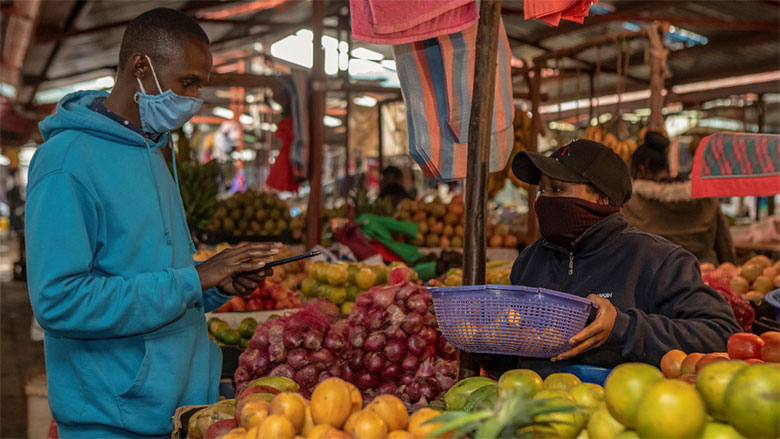NAIROBI, April 29, 2020 – COVID-19 (coronavirus) is predicted to further reduce the country’s growth, with significant impacts on the services, manufacturing and agriculture sectors, according to the latest World Bank economic update.
The 21st edition of the Kenya Economic Update, Turbulent Times for Growth in Kenya Policy options during the COVID-19 Pandemic, finds that the pandemic is also disrupting trade and key sources of foreign exchange, such as tourism and cut-flower exports, and is expected to weigh on remittances and foreign direct investment, with the global economy sinking into a deep recession.
“Kenya enters into this crisis with considerable sources of resilience, but the pandemic is causing a very large, negative external shock, and domestic economic activity is being severely disrupted by the needed containment and social distancing measures,” said Peter Chacha, World Bank Senior Economist and lead author of the report. “As a result, we expect gross domestic product per capita to contract in 2020 – a rare, severe event.”
At the same time, the report notes the cost of social distancing is aggravated by the country’s large informal sector, high poverty rate, and unemployed youth population. The report acknowledges these measures have slowed the spread of the virus—likely saving lives—and bought authorities time to strengthen the capacity of the healthcare system. However, the resulting decrease in both domestic production and consumption puts downward pressure on domestic economic activity, amplifying the negative impact of the external shock, and hurting livelihoods. The analysis recommends stepping-up spending on the health sector to strengthen the capacity to cope with potential spikes in COVID-19 cases, and to flatten the epidemic curve over the short-run through health policy containment measures. The authorities have already embarked on doing this, the report notes, with additional budget allocation to the health sector to expand its capacity, including by procuring additional intensive care unit beds and respiratory-support machines.
Additional recommendations include keeping the emphasis on quickly and efficiently deploying the additional resources and supporting Kenya’s health system, including by identifying temporary isolation facilities in counties, and continuing to progress with procurement, especially for critical supplies such as personal protective equipment and testing kits.
“Government faces a difficult task, in the face of high uncertainty, to minimize the loss of life and livelihoods due to the virus,” said Alex Sienaert, World Bank Senior Economist and co-author of the report. “Building on its early, decisive actions to contain the spread of the virus, which has helped buy time to strengthen healthcare capacity, government will need to continue to calibrate the response across the spectrum of containment options.”
The report proposes the government maintain a strong focus on supporting the most poor and vulnerable households, including through cash transfers, and highlights utilization of mobile technology and payment systems to increase such support. With more than 47 million active mobile subscriptions and a 90% mobile penetration, the report identifies mobile phones as a convenient platform for sending and receiving money and short-term credit to the most vulnerable, while also disincentivizing the use of cash, provided the challenge of appropriately targeting the transfers to those who need it most can be met.
The report also discusses a range of additional economic policy options to address the crisis, which could be considered to build on the fiscal package under implementation by the government. Given the scale of the economic shock, economic support measures are called for, the report says, but such measures should be timely, targeted and temporary, especially since Kenya enters into this crisis with already stretched public finances.
To further cushion workers and firms, the report says additional measures to support firms could be considered, including targeted liquidity support and de-risking measures like credit guarantees. The report also suggests supporting firms’ operations, for example by facilitating their transitions to digital platforms compatible with social distancing.
The economic update projects Kenya’s economy will grow by 1.5%in 2020 in its baseline scenario, sharply down from an estimated 5.6% in 2019, due to the COVID-19 crisis. However, in a more adverse scenario, it is possible that economic output will contract this year. The uncertainty around growth and other economic projections is unusually high at this time, as a result of the undetermined future path of the virus and policy, and household and firm behavioral responses, in Kenya and globally.
In this rapidly-evolving situation with high uncertainty, the report encourages continuing to calibrate its response across the spectrum of containment options and economic policies. To support this, the report points out the need to invest to obtain more, better, and timely data, to inform policy, including more health data by ramping up coronavirus testing efforts, and economic data such as through phone surveys of households and firms.
